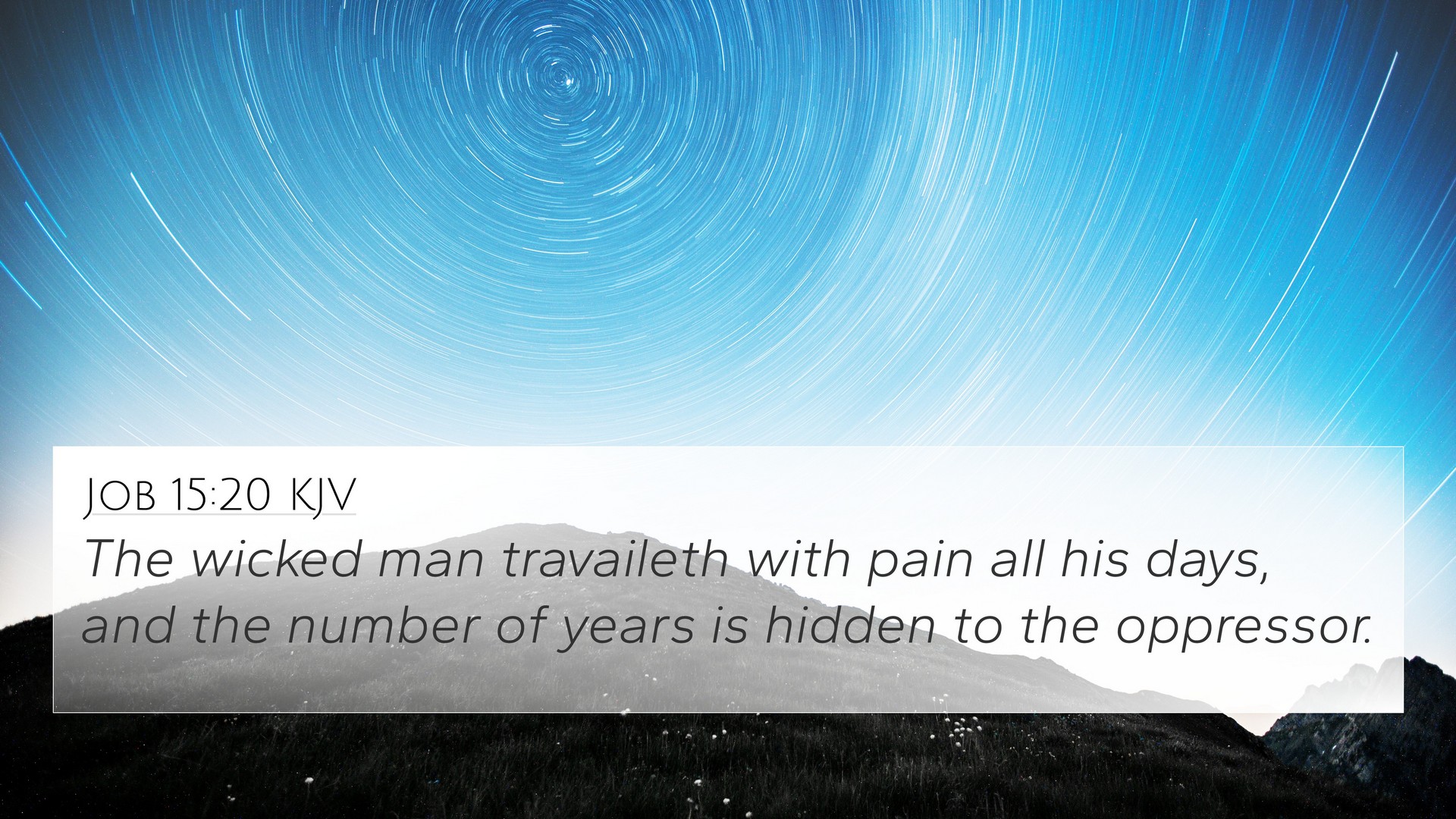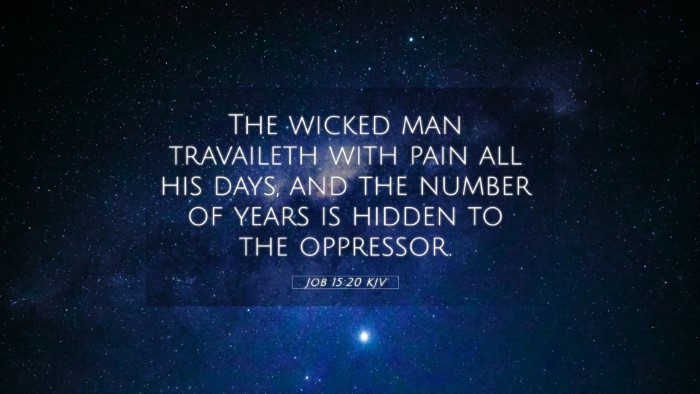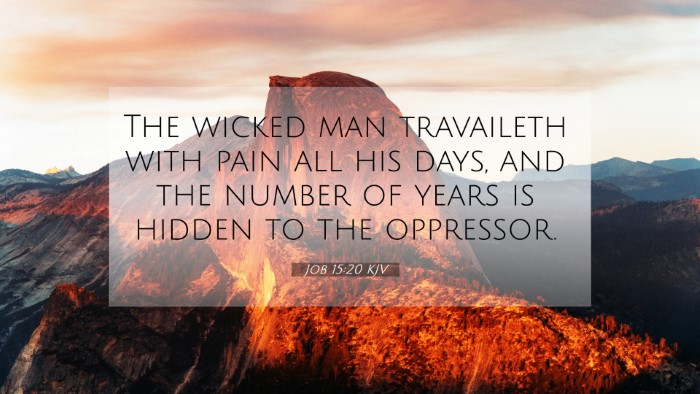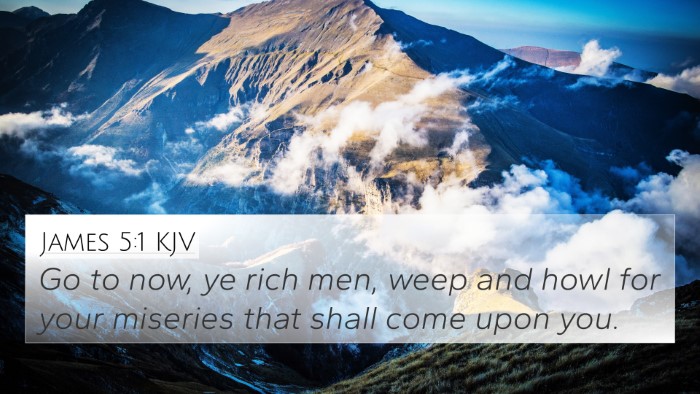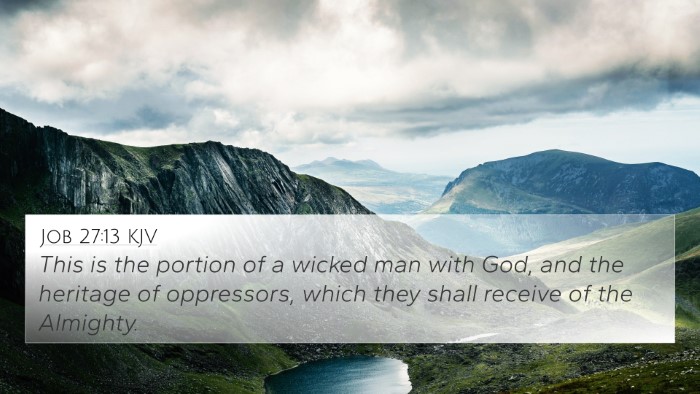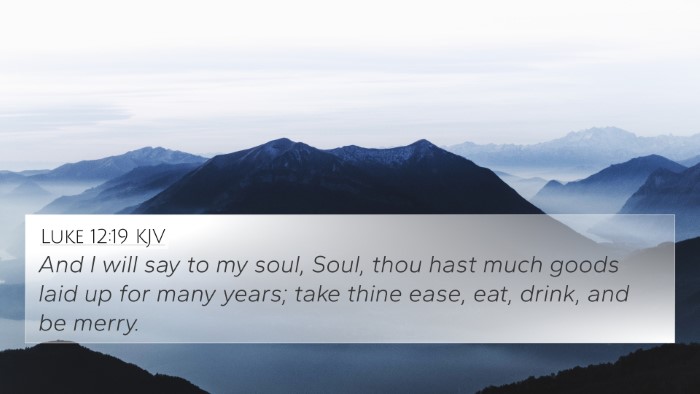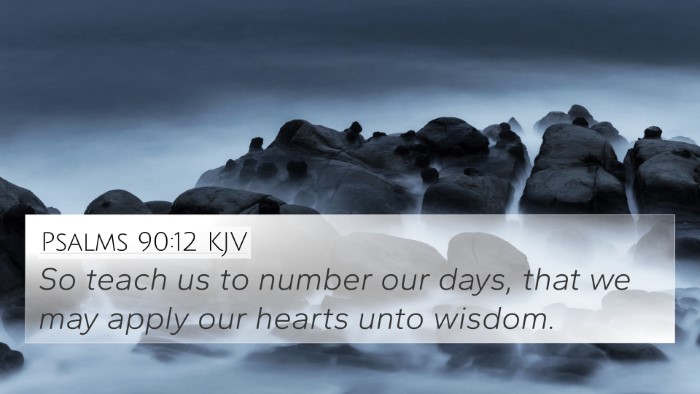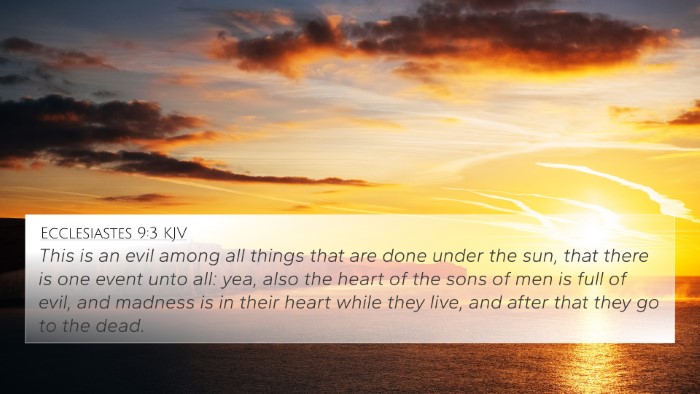Understanding Job 15:20
Job 15:20 states: "The wicked man travails with pain all his days, and the number of years is hidden to the oppressor." This verse captures the essence of the suffering experienced by those who live in opposition to God. Through a combined analysis of public domain commentaries from Matthew Henry, Albert Barnes, and Adam Clarke, a deeper understanding can be gained.
Meaning and Interpretation
The verse reflects the inner turmoil and relentless suffering that accompanies a life of wickedness. Here are some insights drawn from the commentaries:
- Matthew Henry: He emphasizes the continuous nature of the wicked man's suffering, highlighting that it is not limited to a single occurrence but is a lifelong plight. Henry notes that the pains faced by the wicked are compounded by the anxiety about the future, making their situation even more dire.
- Albert Barnes: Barnes focuses on the internal pain that wicked individuals experience. He discusses how their actions lead to a spiritually impoverished state, causing inner distress that is often accompanied by physical afflictions. Barnes also suggests that this pain is reflective of their separation from God and the ensuing judgment they face.
- Adam Clarke: Clarke interprets the 'hidden years' aspect to imply that the wicked do not know how long they will suffer or when their fate will come to fruition. His commentary suggests a reference to the unpredictability of divine judgment which adds to the anguish of the wicked man's experience.
Thematic Connections
This verse aligns with various themes found throughout the Scriptures, illustrating the fate of the wicked juxtaposed with the life of the righteous. The following Bible verse connections can be made:
- Psalm 1:4-6: The fate of the wicked is contrasted with that of the righteous, emphasizing the latter's stability and the former's ultimate demise.
- Proverbs 13:21: “Evil pursues sinners, but to the righteous, good shall be repaid.” This aligns with the theme of suffering as a consequence of wickedness.
- Ecclesiastes 8:14: The observation of injustice where the wicked seem to prosper, yet their end is ultimately destruction.
- Isaiah 57:21: “There is no peace, says my God, for the wicked,” reinforcing the lack of tranquility experienced by those who oppose divine law.
- Romans 2:9: “There will be tribulation and distress for every human being who does evil.” This connects to the ongoing pain depicted in Job 15:20.
- Job 10:3: Job laments his suffering, illustrating the despair caused by his torment, which parallels the experiences of the wicked described in Job 15:20.
- Galatians 6:7: “For whatever one sows, that will he also reap.” A clear connection exists between actions and their consequences.
Tools for Bible Cross-Referencing
To fully appreciate the connections in biblical text, one can utilize various tools and methods:
- Bible Concordance: A good concordance can help identify related verses and themes.
- Bible Cross-Reference Guide: This tool lays out connections and allows for thematic studies.
- Bible Cross-Reference System: Many study Bibles come equipped with a cross-reference system that highlights similar verses.
- Cross-Referencing Bible Study Methods: Methods such as thematic studies or verse mapping help to identify related scriptures.
- Bible Reference Resources: Online libraries and apps can provide extensive cross-reference tools.
Conclusion
In conclusion, Job 15:20 encapsulates profound truths about the struggles of the wicked. The analysis provided by reputable commentators allows for a multi-faceted understanding of suffering as a consequence of living contrary to God's will. Through linking Bible verses, one can gain insights that enhance their scriptural knowledge and deepen their faith.
Additional Connections and Reflections
As individuals engage with this verse, they may find it beneficial to reflect on:
- How does one's understanding of suffering shape their faith and perspective?
- In what ways do the experiences of the wicked resonate with contemporary issues of justice and equity?
By exploring these dimensions, one can delve deeper into the narrative and theological richness of the Scriptures.
